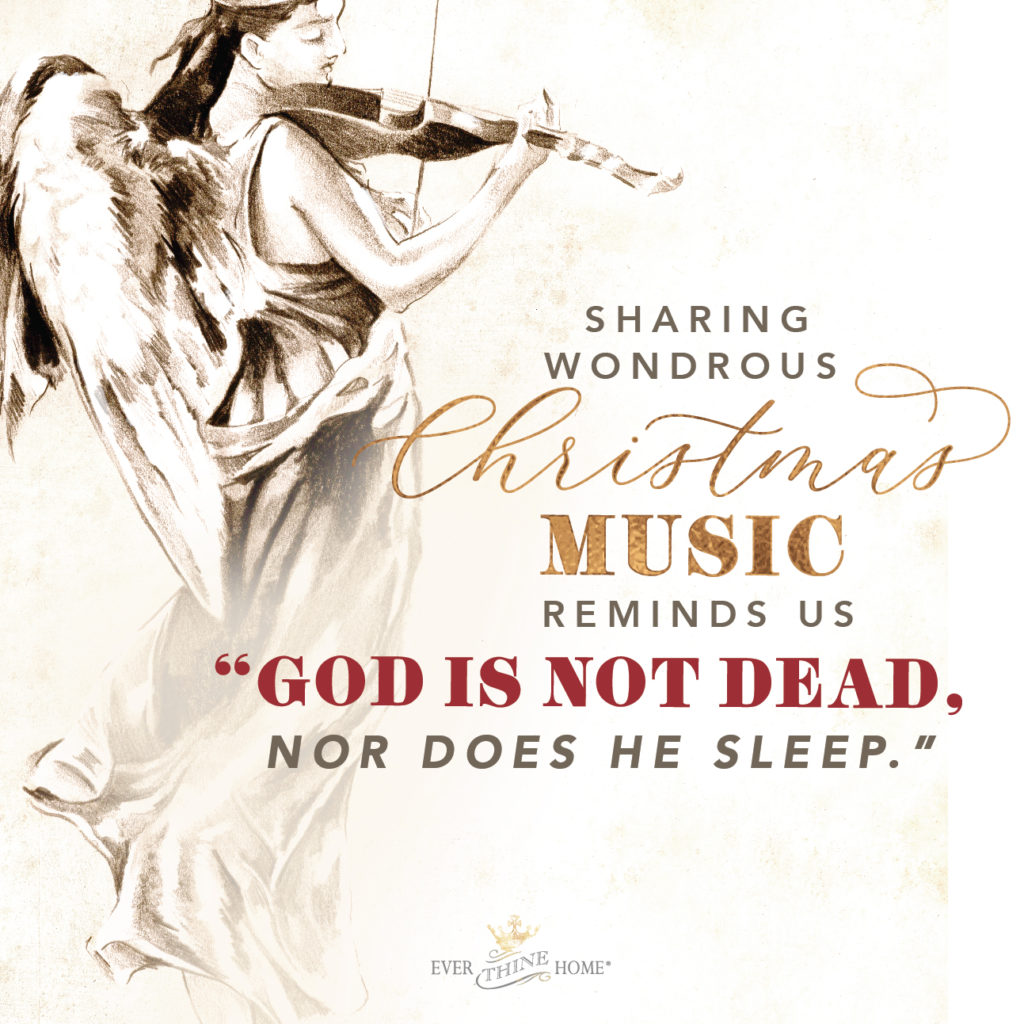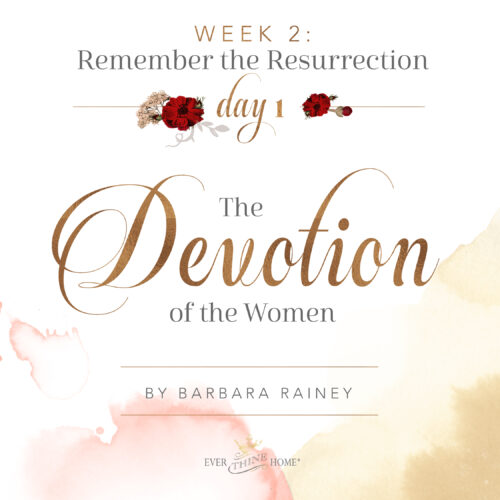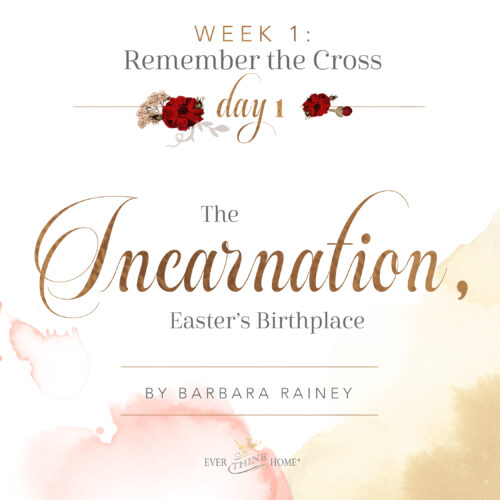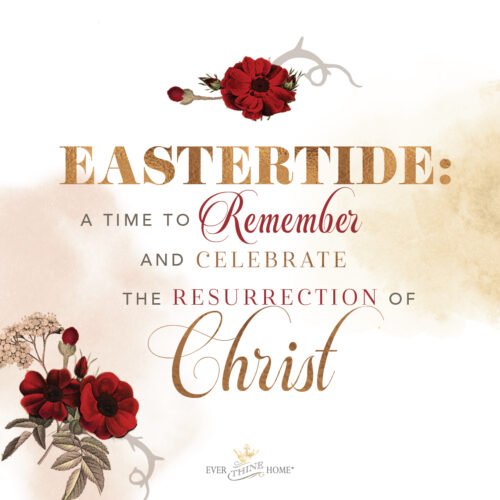
Everyone’s life is a story.
And everyone’s story includes long and often repeated chapters of suffering. As the Psalms remind us, we sometimes feel that God has abandoned us, that He isn’t listening or paying attention, or that perhaps He is asleep.
But just as every masterful novel, musical, or song has a theme, so the Author of our stories has a purpose He is writing for our beauty and His glory. The skilled Author weaves trouble or tragedy into stories as the birthplace for good, the turning point for triumph.
My favorite hymn became so because I heard the tragic story of its author. Horatio Spafford’s loss of his four daughters in a ship disaster was incalculable. Yet a month later he wrote the words to “It Is Well with My Soul” to boldly proclaim to His God that he still believed. Though I love the words of this song and its music, the singing is infinitely richer with meaning because I know the author’s story. His story gives me courage.
Music is a mystery. Melodies embed themselves in our memories along with the words whether we love them or not. For Christians singing has been part of our faith since Jesus sang with His disciples in the upper room.
It has been said that music is the language of heaven. The sounds of music full of grace and truth enrich our lives. They mysteriously stir our hearts and often unexpectedly touch our emotions. The impact lingers so that we remember the moment often years later.

This phenomenon tells us elegant music is divine. It cannot be explained any other way, says John Henry Newman who wrote this conclusion in a sermon: Majestic sound “has escaped from some higher sphere; they are the outpouring of eternal harmony in the medium of created sound; they are echoes from our Home.”
At Christmas, heaven touched earth in the incarnation. And for two thousand years since, Christians have been singing His story from hearts touched by His life echoing the notes of Home.

Every Christmas carol or hymn was conceived as an idea, often in the crucible of suffering or a crisis, then born with a purpose. And they all are wrapped in the personal stories of the author and musician.
Some of my favorites were inspirations for Christmas ornaments I designed in 2013. They sold out years ago but I still love both the songs and the stories behind each one:
1. “O Little Town of Bethlehem” was penned by Phillips Brooks, the pastor who preached at Abraham Lincoln’s funeral. He had seen so much suffering over the years of the war as men died and families needed long term care and comfort. After Lincoln’s funeral he went on a pilgrimage to Israel looking for a renewal of his faith.
On Christmas Eve he arrived in Bethlehem and was awestruck at the simple, humble, non-descript place that welcomed the God of the universe, the Savior of the world. Worshipping there he was changed. Three years later he expressed the wonder of that moment in this hymn for the people of God.
2. Hymns and songs of praise to God have been written around the globe in every language. A hymn written in French for a local congregation was discovered by musician John Dwight, who translated it into English in the 1860s. But it wasn’t until Christmas Eve in 1906, when the first AM radio program aired the song, that it became widely known. For on that night Reginald Fessenden read Luke 2 to the large listening audience followed by his violin singing the heavenly sounds of “O Holy Night.” The hymn was instantly loved and treasured by all who heard it.
3.Known as one of the oldest of all Christmas carols, “O Come, O Come Emmanuel” was written by a priest or monk around 800 AD. Initially sung in Latin during Catholic mass, the words of Isaiah 7:14 were used to teach listeners who the Messiah was and what He was sent to do. In many churches even today a stanza is sung each Sunday of Advent as one way to prepare for the celebration of His incarnation on Christmas Day.
4. “Silent Night” is the most widely recorded song in history. It’s been sung on battlefields, in outdoor Christmas pageants and of course in churches. But the song would have never been written were it not for a malfunction of an organ in a tiny Austrian village. The priest was panicked; he knew he couldn’t have a Christmas service without music, so he prayed for a solution and remembered a poem he had written. When he found it he raced to a friend and begged him to write music for it. God gave inspiration and on Christmas Eve in 1818 “Silent Night” debuted.
All of these melodies with words have a story behind them which adds such richness to our singing of the words and tune. So it is with all music that honors our God.
I have one more to share that is also a favorite of mine because of the story behind it. But even more than the author’s personal story is the Author Himself who was and is continuing to write through us. He came at Christmas to redeem all of us. He also came to inspire us to proclaim His Name in ways only we are gifted to do.
5. The context for “I Heard the Bells on Christmas Day” is also the Civil War. War is hell. Listening to my father talk about it and having read countless books about wars and atrocities it is hard to imagine how anything good could every come from such destruction.
But God …
He who promised “ … for those who love God all things work together for good, for those who are called according to His purpose” (Romans 8:28) has indeed brought good even from war and death. In 2020 when death has been a significant theme in our collective story and in mine personally, it is good to remember we are not alone in our suffering.
Be sure to watch this video which tells more about the story behind “I Heard the Bells on Christmas Day.” I hope you will enjoy the beautifully arranged images as you listen to a song written for another era but perfectly at home in our own. Then share it widely with those you know. For such a time as this!
May the hymns of Christmas bring you hope and give you courage to keep believing no matter what suffering is in your life today or in the future.
For more about “I Heard the Bells on Christmas Day,” including two stanzas in the original poem but not included in the lyrics, click here.
If you want to learn more about the fascinating stories behind many of our favorite Christmas hymns and carols, I highly recommend two books by Ace Collins: Stories Behind the Best-Loved Songs of Christmas and More Stories Behind the Best-Loved Songs of Christmas.





The beautiful hymns and carols of Christmas have always been among my favourite songs, but this year they seemed to have a deeper meaning than ever before in light of all that is going on in our world right now. “God is not dead, nor doth He sleep. The wrong shall fail, the right prevail, with peace on earth, goodwill toward men.”
In our worship service Sunday the history of the song “Mary did you know?” was shared and then sung as a solo. Learning how Mark Lowry was inspired to write this wonderful song gives even more meaning to it. Enjoy…
Mark Lowry, a Christian singer, songwriter and comedian, was born in Houston, Texas in June 1958. His father Charles Lowry was an attorney; his mother Bev Lowry was a singer, songwriter and pianist. He learned to love music and could sing beautifully as a young child. He graduated from Liberty University in Lynchburg, Va., in 1980. From 1988 to 2001, he performed with the Gaither Vocal Band, and rejoined the group from 2009 to 2013.
Mark’s story behind “Mary, Did You Know” , as he told it:
“In 1984, Jerry Falwell called and asked me to write the program for their next Living Christmas Tree. As I wrote the ‘speaking parts’ I began to think about Mary. I have always been fascinated with the concept that God came to earth.
In a conversation with my mother, I remember she said, ‘If anyone on earth knew for sure that Jesus was virgin born – Mary knew!’ That was a profound statement that stuck with me.
Mary knew her Child was not ordinary. . . .
As my mind went back to the manger scene, I began to think about the power, authority and majesty she cradled in her arms. Those little lips were the same lips that had spoken worlds into existence. All of those things were contained in the young child lying quietly on her bosom. He was the very one who had given life to his mother, Mary.
I began writing a list of questions I would like to ask Mary if I could sit down with her – questions such as:
‘Mary, do you know who is in your arms?’
‘Did you know the one who holds creation together and the one who holds you together is lying helpless in the manger?’
‘Did you know that your baby boy will walk on water, give sight to a blind man and calm a storm at sea with his hand?’”
Lowry carried his 1984 words with him for the next seven years. In 1991, he asked his good friend from Gaither vocal band days, Buddy Greene, to write suitable music for his poem.
Greene said in an interview, “Mark handed me his lyrics, and I held on to them for about two weeks. One day I pulled them out and looked at them. They seemed to suggest a minor key approach to writing an accompaniment. I completed the musical setting in about 30 minutes. I called Mark at his home in Georgia and on the phone played and sang the song to him. He was ecstatic! He said, ‘That’s it!’ Two weeks later. we met in Mark’s hotel room in Nashville where we recorded the song on a small portable machine. It was then taken to Michael English who was preparing to make an album. He was the first person to record “Mary, Did You Know?”
It has since been recorded by Trin-I-Tee, Katina Brothers, Erin O’Donnell, Brin Littrell, Kenny Rogers, Wyonna Judd, and numerous others.
*****************************
Mary did you know that your baby boy would one day walk on water?
Mary did you know that your baby boy would save our sons and daughters?
Did you know that your baby boy has come to make you new?
This child that you’ve delivered, will soon deliver you.
Mary did you know that your baby boy will give sight to a blind man?
Mary did you know that your baby boy will calm a storm with his hand?
Did you know that your baby boy has walked where angels trod?
When you kiss your little baby, you kiss the face of God.
Mary did you know? Mary did you know?
The blind will see, the deaf will hear, the dead will live again.
The lame will leap,
the dumb will speak the praises of the lamb.
Mary did you know that your baby boy is Lord of all creation?
Mary did you know that your baby boy would one day rule the nations?
Did you know that your baby boy is heaven’s perfect lamb?
That sleeping child you’re holding is the great I Am.